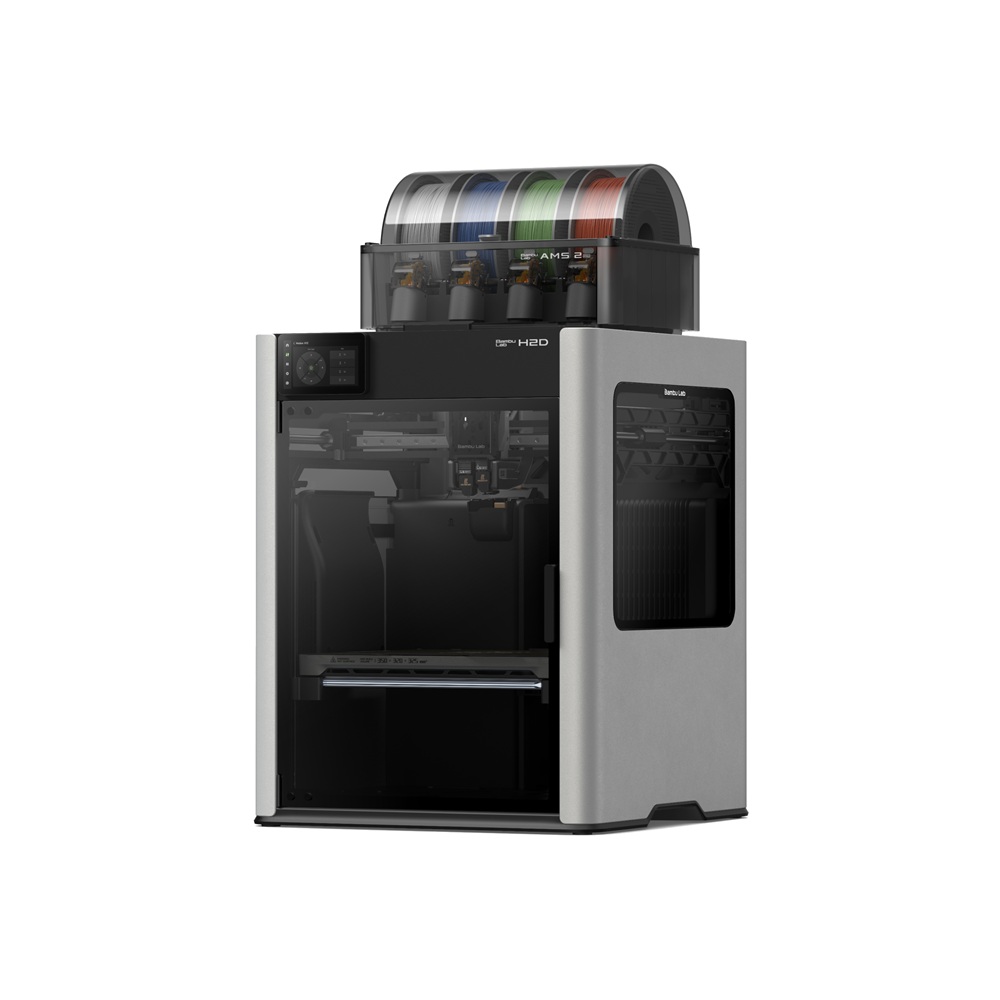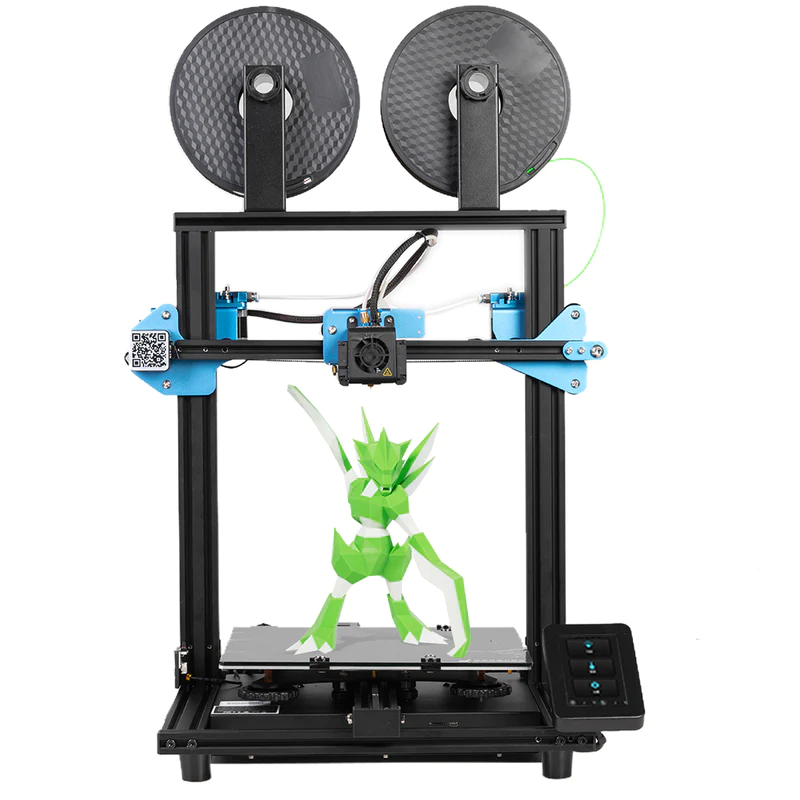Compare H2D vs SV02
Comparison between the best 3D printers
Choose the best 3D printer at the best price. The cheapest 3D printers are here.
Buy a 3D printer here with 3D Fila.
 |
 |
|
| Model | H2D |
SV02 |
| Printing Material | Filament | Filament |
| Buy Filament for Bambu Lab H2D | Buy Filament forSovol SV02 | |
| Estimated price | $1899,00 | $209,00 |
| Manufacturer | Bambu Lab | Sovol |
| Release Year | 2025 | 2020 |
| Print Volume [mm] | 350x320x325 | 280x240x300 |
| Printer Size [mm] | 492x514x626 | 539x493x710 |
| Weight [kg] | 42,3 | 11,86 |
| Power Loss Recovery | YES | YES |
| Enclosed printer | YES | NO |
| Bed Leveling | Automatic | Manual |
| Filament End Sensor | YES | NO |
| Bed type | Heated | Heated |
| Power supply system | Direct Drive | Bowden |
| Standard nozzle | 0,4 | 0,4 |
| Maximum Nozzle Temperature [°C] | 350 | 260 |
| Maximum Bed Temperature [°C] | 120 | 110 |
| Maximum printing speed [mm/s] | 600 | 120 |
| Filament holder | YES | YES |
| Camera for supervision | YES | YES |
| Recommended filaments | PLA, PETG, ABS, ASA, TPU, PVA, Nylon (PA) | PLA, PETG, Tritan, Flex, ABS |
| Recommended slicers | Bambu Studio | Cura, Simplify, Slic3r, IdeaMaker |
| Maximum Resolution [mm] | 0,01 | 0,1 |
| Processor | ||
| Display | Touchscreen 5'' | Display touchscreen 4,3'' |
| Power Supply | ||
| Connectivity | Wifi, Bambu bus, Cartão SD | SD / USB |
| Operating systems | Windows, Mac, Linux | Windows, Mac, Linux |
| Date of registration in the system | 2025-03-31 | 2022-11-10 |
| Release date | 2025 | 2020 |
| Extra features | Bambu Labs H2D combines high-speed 3D printing with a chamber heated up to 65 °C, dual extrusion with automatic nozzle switching, an AMS for filament drying and exchange, and AI sensors that detect failures. It offers optional laser and digital cutting capabilities, features intelligent calibration through computer vision, vibration control, enhanced fire safety, and real-time camera monitoring. | The Sovol SV02 is a dual extrusion 3D printer with two inputs and one output hotend, silent motherboard and 4.3" color touchscreen. It includes a tempered glass platform for glue-free adhesion, dual Z-axis for more stability, and fast heating with Mean Well power supply. It has a resume printing function and support for upgrades, such as an automatic leveling sensor. |
| Support for multiple colors and materials (AMS and CFS) | YES | NO |
Notes * |
||
| Cost-benefit | 7 / 10 | 7 / 10 |
| Hardware | 7.2 / 10 | 1.5 / 10 |
| Tela | . | . |
| Print volume | 4 / 10 | 4 / 10 |
| Performance | 5 / 10 | 1 / 10 |
Conclusion |
| In conclusion, the comparison between the Bambu Lab H2D and the Sovol SV02 highlights a stark contrast in capabilities and price points that cater to different user needs. The Bambu Lab H2D, although significantly more expensive, boasts advanced features that justify its price. It offers a larger print volume, higher maximum printing speed, and exceptional temperature handling, making it suitable for more complex projects and a wider range of materials. Features like automatic bed leveling, a heated enclosure, and intelligent sensors for failure detection enhance its usability and reliability, particularly for professional users or serious hobbyists seeking high-quality prints and efficiency. On the other hand, the Sovol SV02, while more affordable, presents itself as a solid entry-level option for those just starting in 3D printing or for casual users. Its manual bed leveling and lack of an enclosed chamber may limit its performance compared to the H2D, but it still supports essential printing functions and offers the convenience of dual extrusion. It may serve well for straightforward projects and provide a good foundation for users looking to explore 3D printing without a massive investment. Ultimately, users should align their choice with their specific needs, budget, and printing goals. Those requiring advanced features and capabilities might find the Bambu Lab H2D worth the investment, while beginners or budget-conscious individuals may prefer the Sovol SV02 for its cost-effectiveness and fundamental functionalities. |

